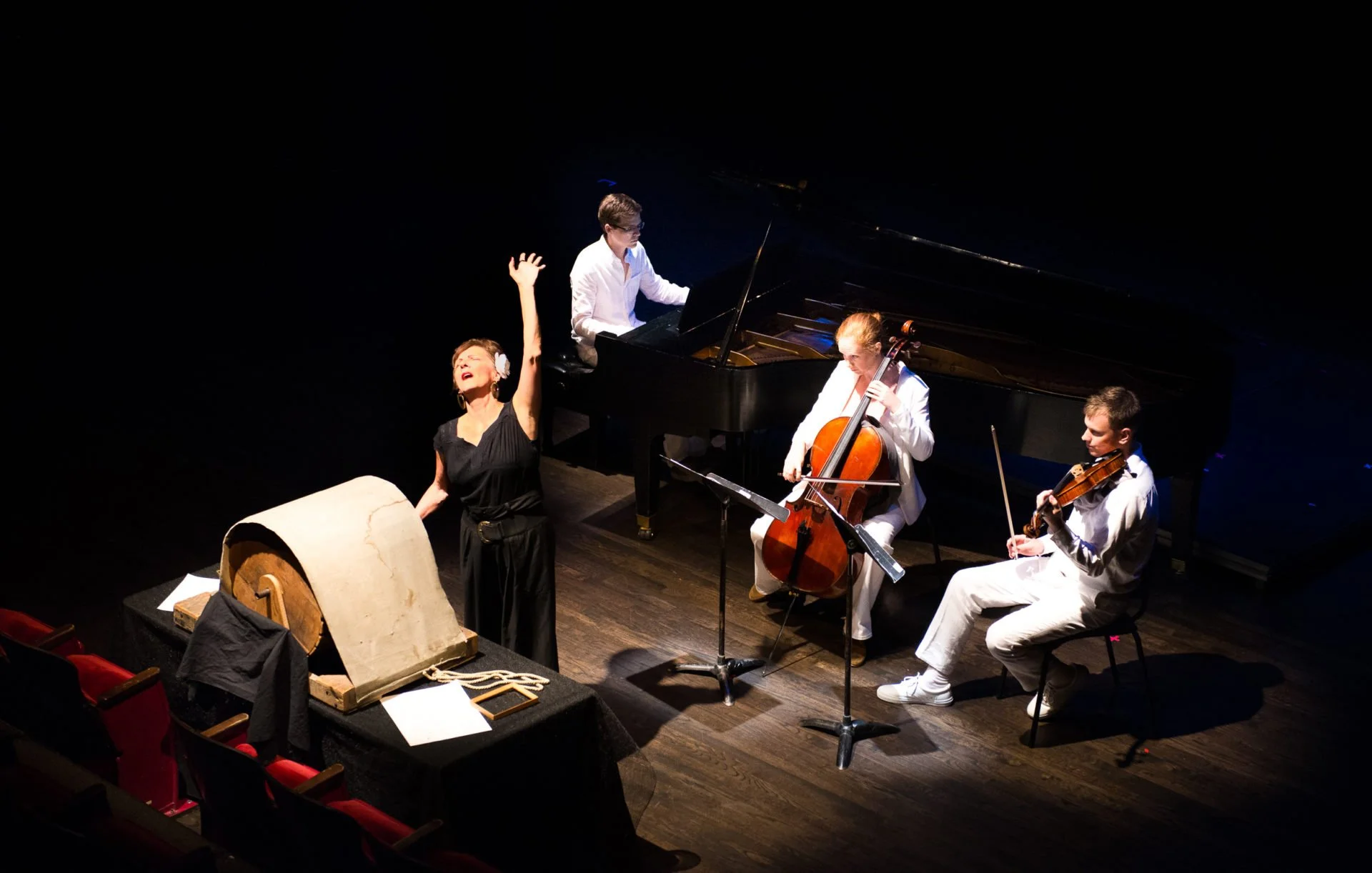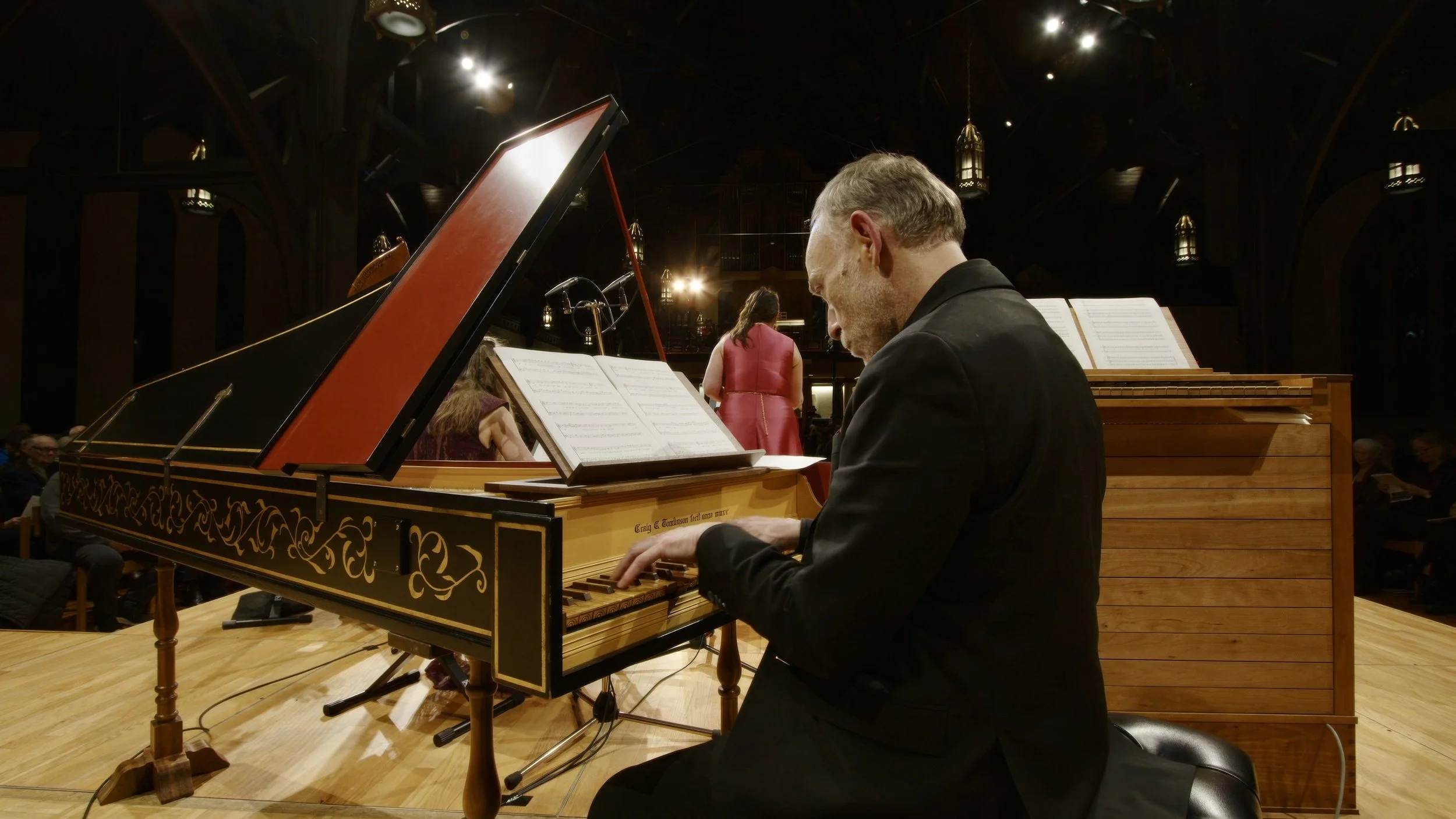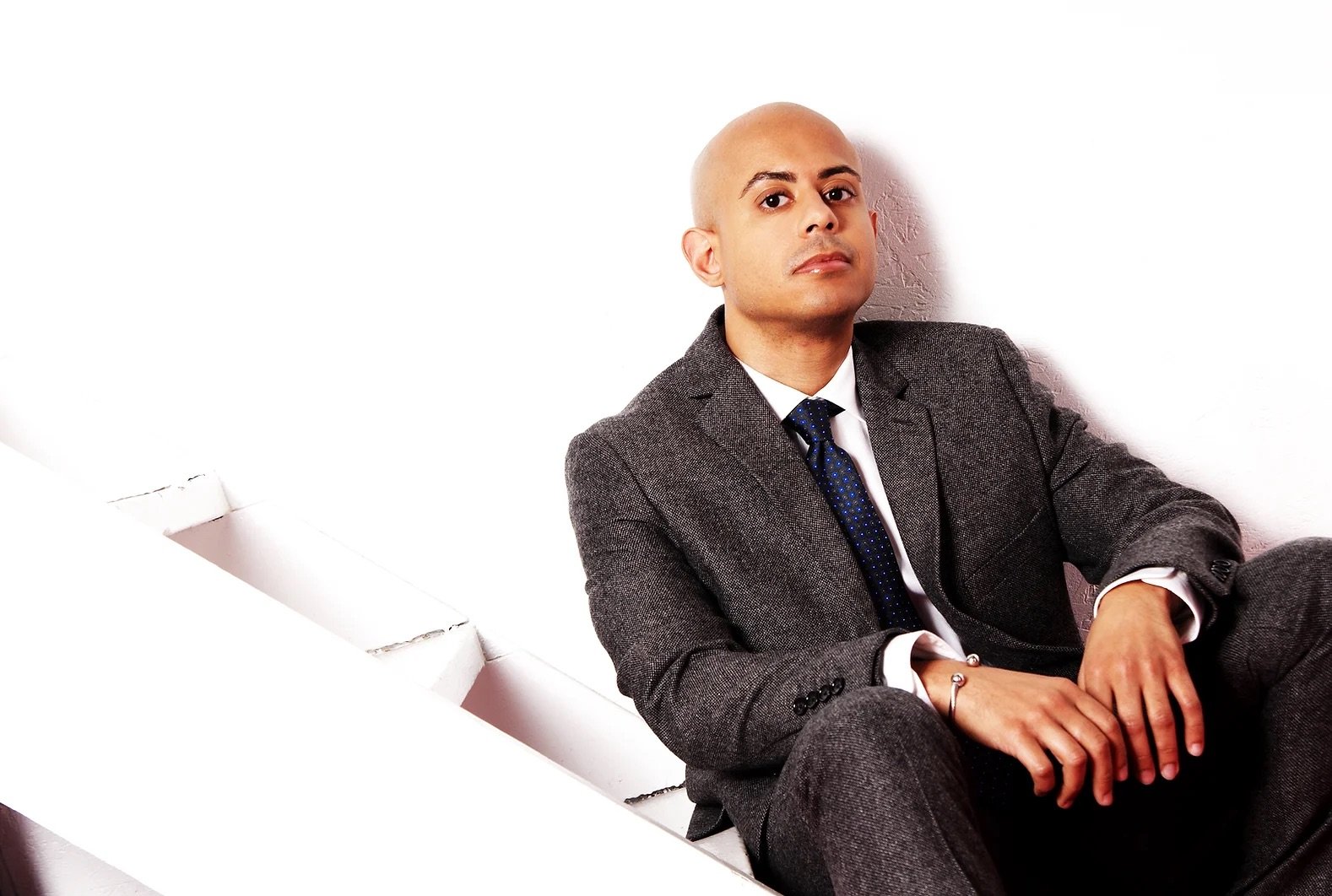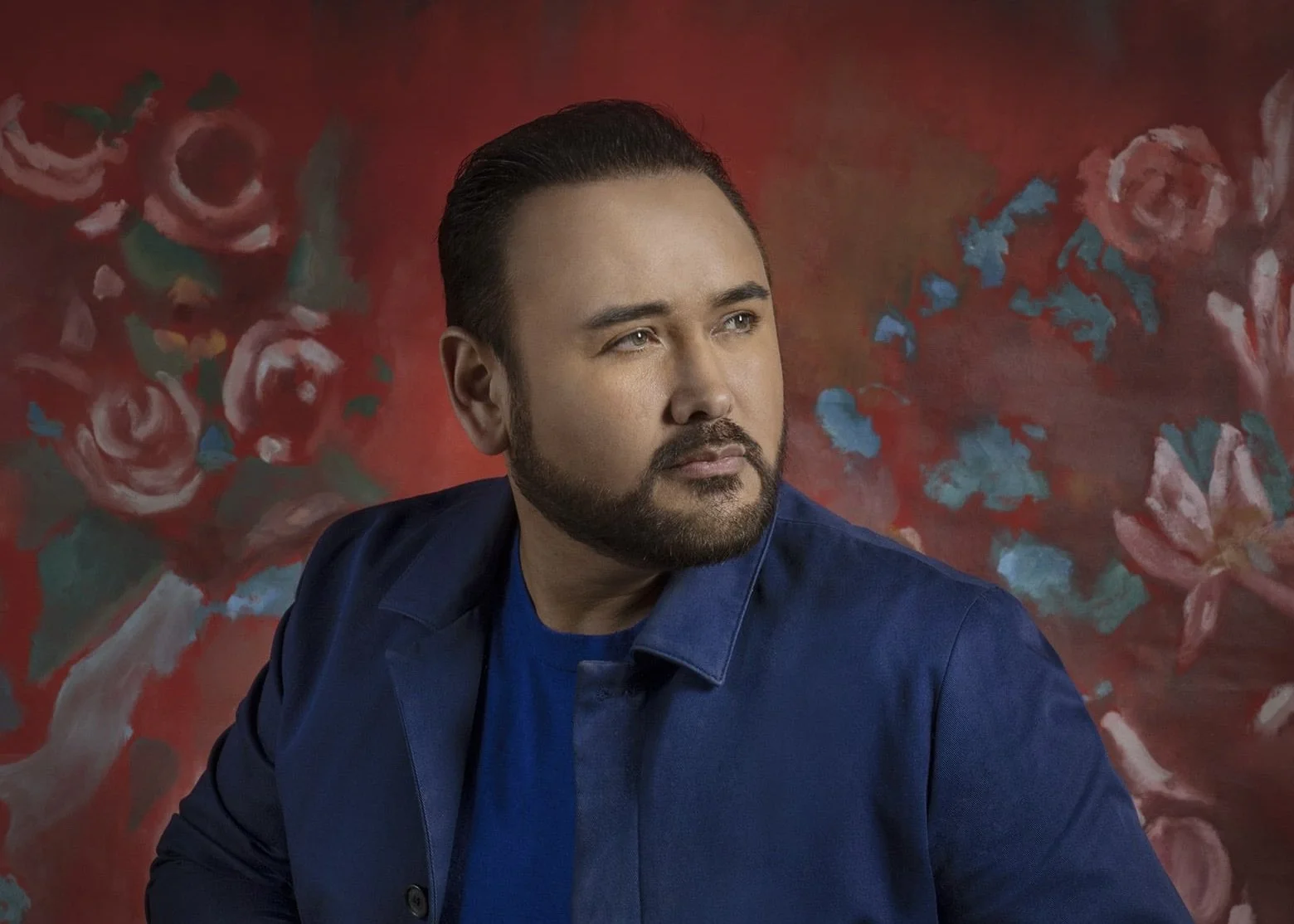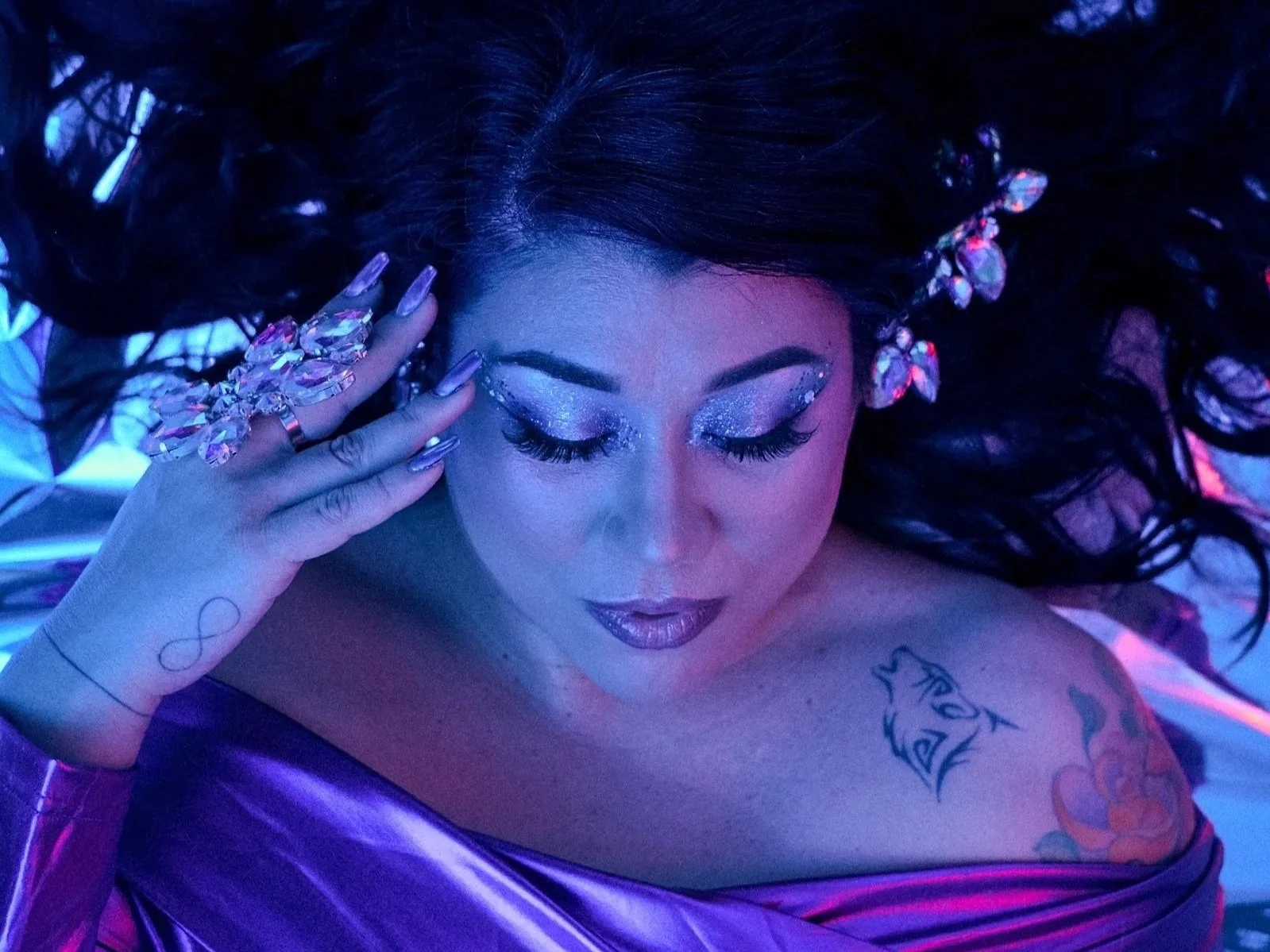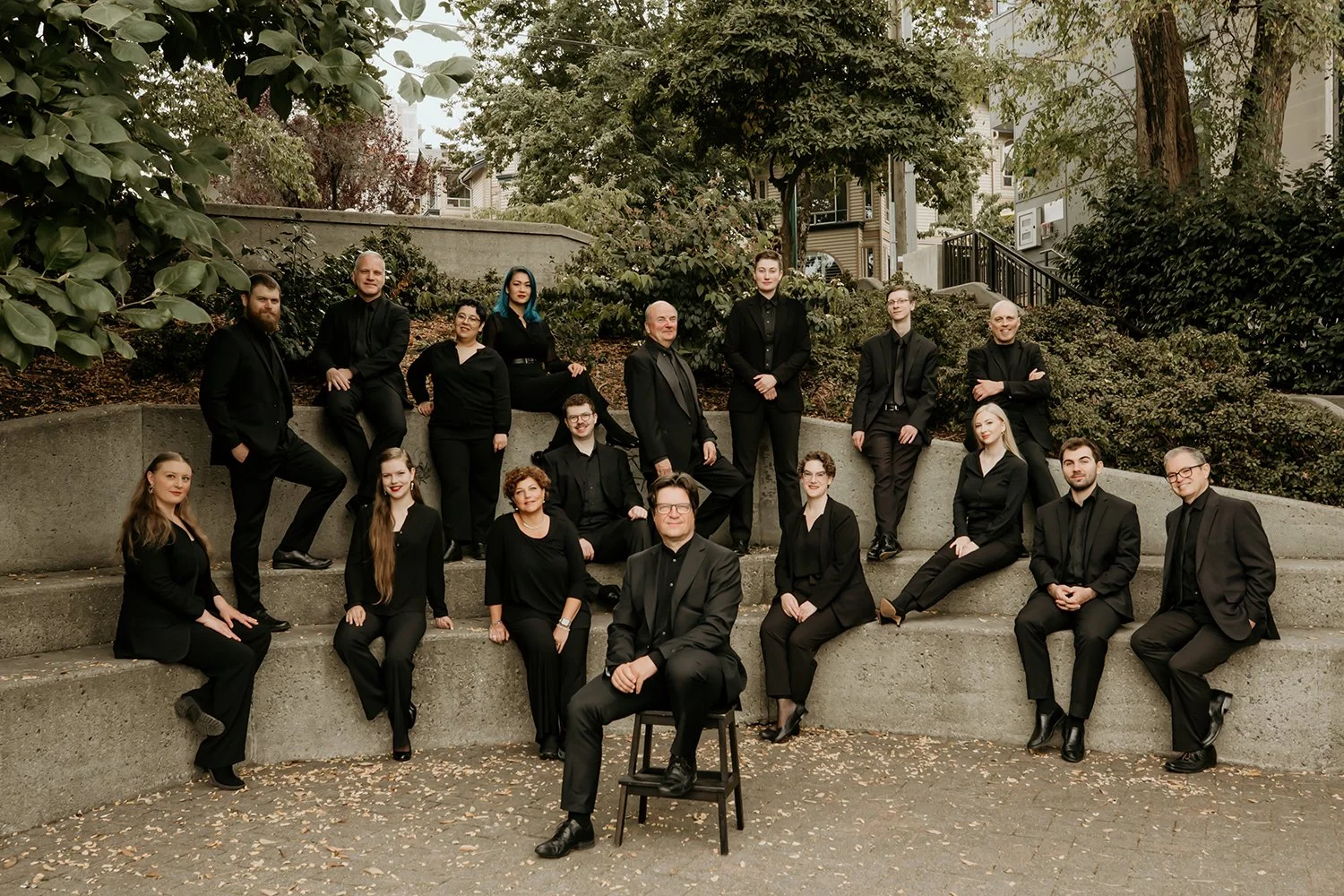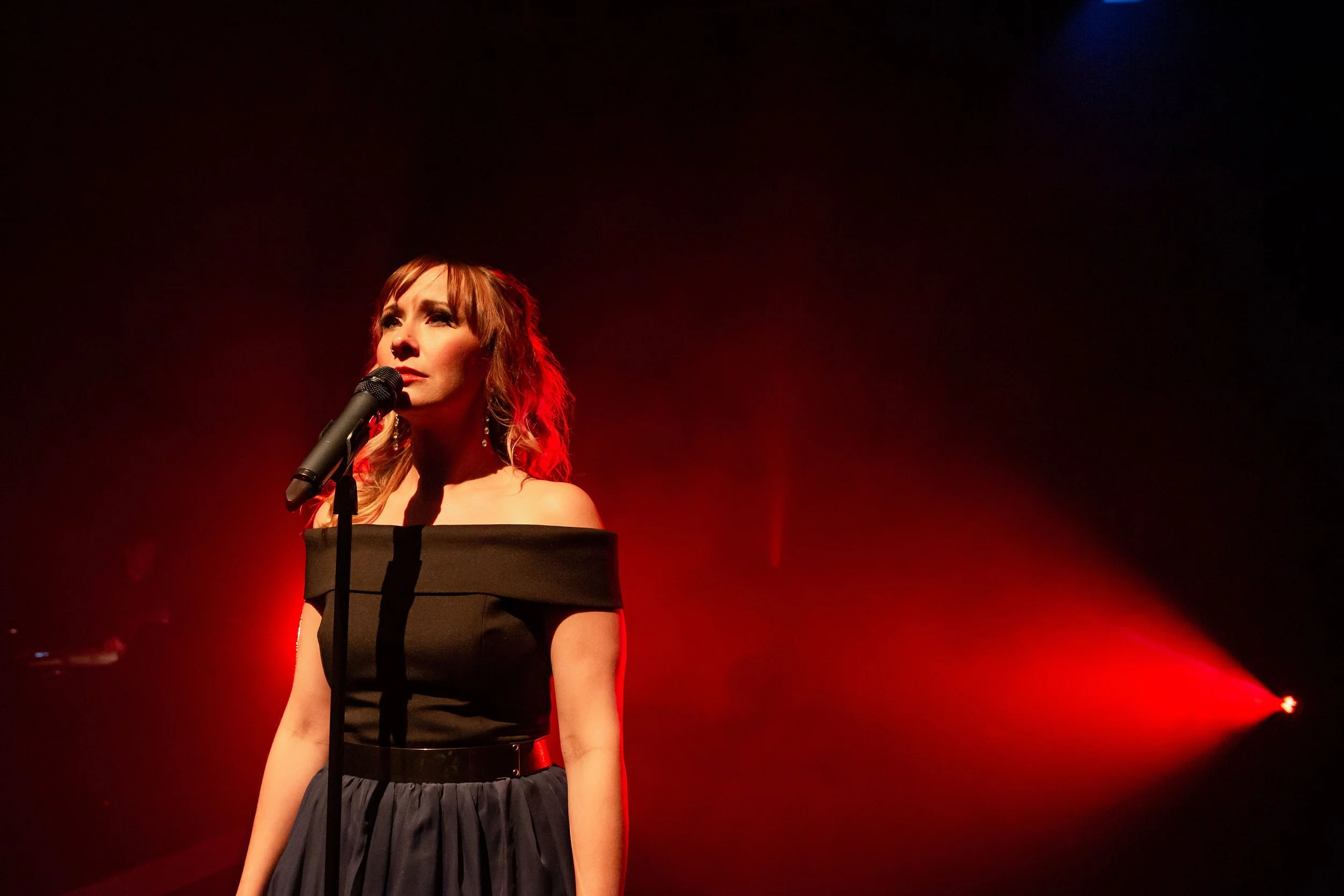The Tempest Project guides audiences through a roving Shakespeare concert at the Vancouver Playhouse
In the Music on Main show, listeners follow a cast of musicians around the venue as they perform a diverse Bard-inspired score conceived by David Pay
David Pay’s The Orpheus Project guided audiences through the entirety of The Cultch’s Historic Theatre in 2014; now, a decade later, The Tempest Project will do the same at the Vancouver Playhouse. Photo courtesy of Music on Main
Music on Main presents The Tempest Project at the Vancouver Playhouse from July 17 to 21 at 7 pm, and July 20 to 22 at 1:30 pm
ALTHOUGH THE TEMPEST PROJECT’S creative spark plug and director David Pay is careful to explain that Music on Main’s new, Shakespeare-inspired undertaking is not a literal retelling of the Bard’s 1611 drama, it might not hurt to reread his script before venturing into the Vancouver Playhouse next week. And if time does not allow for this, we’re willing to offer a helpful prompt: turn to Act III, Scene II, and see what the enslaved Caliban says to the comic figures Stephano and Trinculo.
“Be not afeard; the isle is full of noises,
Sounds and sweet airs, that give delight, and hurt not.
Sometimes a thousand twangling instruments
Will hum about mine ears; and sometime voices,
That, if I then had waked after long sleep,
Will make me sleep again: and then, in dreaming,
The clouds methought would open, and show riches
Ready to drop upon me; that, when I waked,
I cried to dream again.”
It’s as good a summation of The Tempest Project as any, for this multi-artist undertaking is itself a kind of dream. Fanciful and far-sighted, it posits its venue as an island unto itself, within the ever-changing sea that is Vancouver—and after partaking of its rich and varied delights it will indeed be difficult to wake and return to the world of thrumming traffic and half-heard cellphone chatter.
What, exactly, listeners will encounter during performances held from July 17 to 22 is perhaps best left under wraps. Surprise is a large part of this work’s intent, and we don’t even know just where you’ll encounter what. Building on the decade-old success of Pay’s earlier The Orpheus Project, this promenade-style show forgoes the proscenium to take participants through the entirety of the Playhouse. Some scenes might play out on the stage; others in the bowels of the venue’s basement or in a lofty lighting booth.
David Pay. Photo courtesy of Music on Main
“I think what this does is it changes our bodies,” says Pay, who’s known for building social engagement into all of Music on Main’s productions. “Our bodies are always part of the performance whether we’re sitting in a seat or standing at a rock show. And so how does our body moving through space change our perception of the music that we’re hearing—and maybe also the ideas that are being shared with us?
“You get to go backstage sometimes, and I get to go on-stage a lot of the time,” he adds, “but for audience members to get to go backstage, it’s like ‘Woah! I’ve been to this place but I’ve never seen anything like this!’ So it wakes you up in a way that other kinds of theatre and other kinds of music don’t.”
Helping to build this beautiful and unsettling island’s soundscape is an extraordinary cast of musicians and composers, who’ll reappear in different combinations as audiences traverse the show. Gabriel Kahane, Alfredo Santa Ana, Nancy Tam, and Saina Khaledi have written the score; guitarist Aram Bajakian, flutist Paolo Bortolussi, percussionist Julia Chien, zheng player Dailin Hsieh, pianist Rachel Kiyo Iwaasa, cellist Jonathan Lo, singer Julia Ulehla, and santour player Khaledi will perform.
“It’s definitely not an ensemble that’s had any pieces written for it before!” Pay notes, adding that assembling the cast has been both a highly collaborative process and a two-year undertaking. “Santour and zheng and electric guitar and an improvising singer who has an opera background… It is an ensemble that’s really diverse in its musical experience and also in its cultural backgrounds. It’s about bringing together something that I thought would sound like Vancouver, in terms of it not just drawing from one group of folks. We have improvisers, we have classical Chinese musicians, classical Persian musicians, and Western classical musicians, and we have jazz… We have all sorts of influences going on, which I think is representative of the city.”
There’s no doubt that the original Tempest’s themes, though traceable to the Elizabethan era, are similarly relevant to the city—or, indeed, to today’s wider world. Music on Main’s website lists the play’s central concerns as “revenge and forgiveness, love, magic, freedom, and betrayal”, but today it’s also necessary to understand that Shakespeare intended his work to be an early critique of colonialism. It’s certainly undeniable that when the exiled aristocrat and magician Prospero and his retinue find themselves shipwrecked on an enchanted tropical island, they don’t stop to smell the coconuts; instead, they promptly subjugate and enslave those whose territory they’ve invaded.
That’s a view that Pay both embraces and hopes to deflect.
“Colonialism is central to what Shakespeare is writing about,” he says. “What does it mean to take language, to claim land as your own, to be totally unaware of what you’ve done? That’s a big part of what Shakespeare wrote: he wrote it around the time of the discovery of new islands in the New World; he wrote it around the time of slavery in Britain. So these things were very much in the world as he was writing it, but Shakespeare’s Tempest is, I think, a complicated and complex critique that doesn’t just say ‘This is bad.’ He doesn’t spell it out. He doesn’t do it in an easy, basic way. He does it in as complex and complicated a way as colonization has worked in the world and continues to work in the world.
“So having conversations about that has definitely influenced how we work together as a company,” Pay continues. “It’s influenced how we’ve tried to not make one music, like western art music, above another. It’s influenced how we have relationships with each other…but it’s not a show about colonization. And it’s not a show, I would say, about anything specific as well.”
By this, Pay says, he means that in an increasingly complicated social environment, addressing specific complications will not necessarily aid us as we try to navigate its shoals.
“I always have a goal of making spaces where audiences can feel really comfortable with each other, with new people, with new art,” he explains. “And there are times when I think that confrontation is really good in that, but there’s so much in the current moment that’s just about confrontation that I’d rather this be a vessel for just opening each person to thinking about how the world might be. So I think that what that does is allow you to come in and hear a response to colonialism, hear a response to goals of peace, hear a response to the rampant capitalism that tears us all apart.
“This piece is made in the moment, and thus must have feelings of the moment,” he adds, “but we’re trying to make space where we can all just have our views and accept each other and support each other. That’s when I think we can get closer to peace and get closer to equity.”
A dream, perhaps, but one that’s worthy of our respect—and our attention.
![]()


